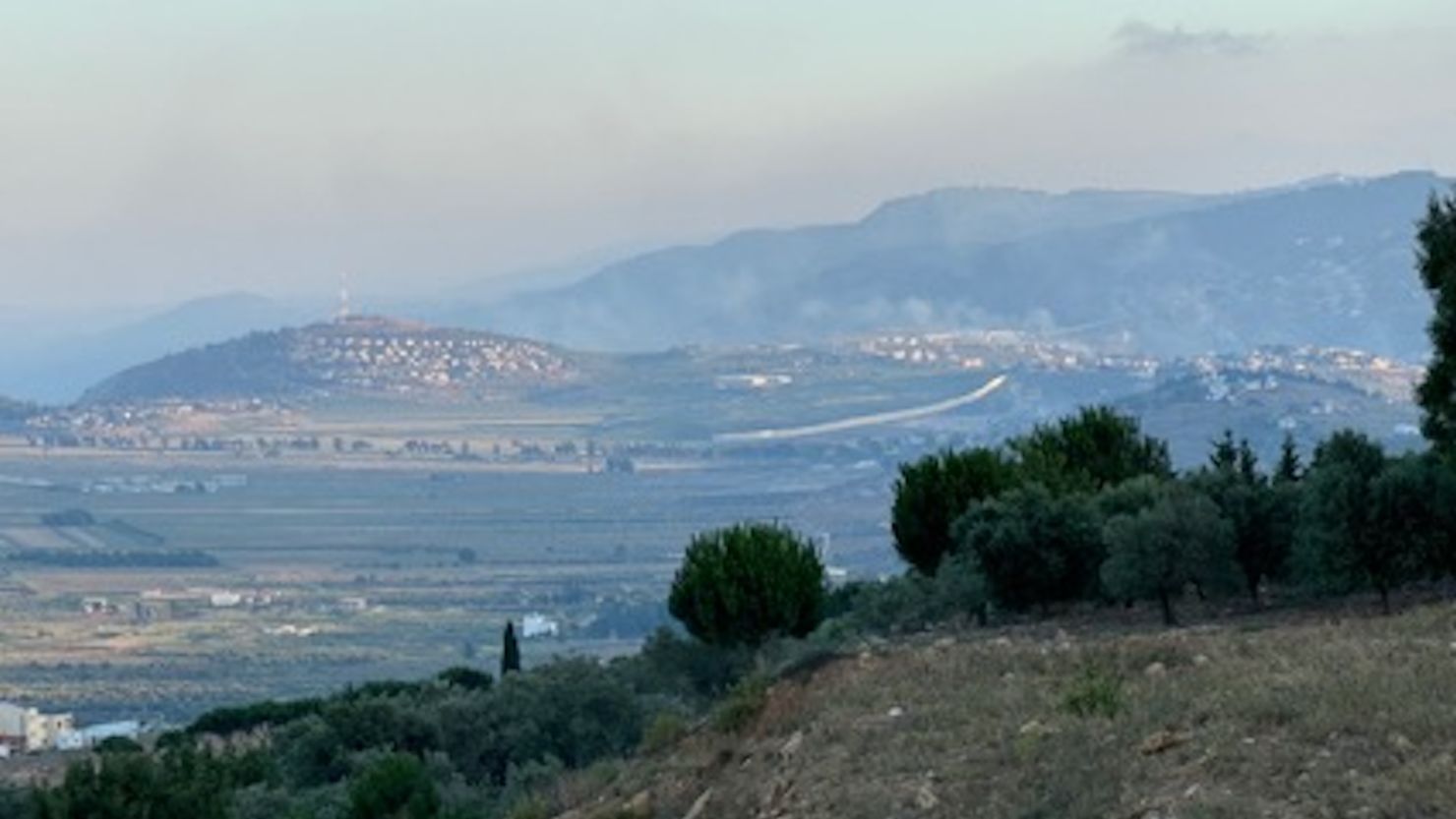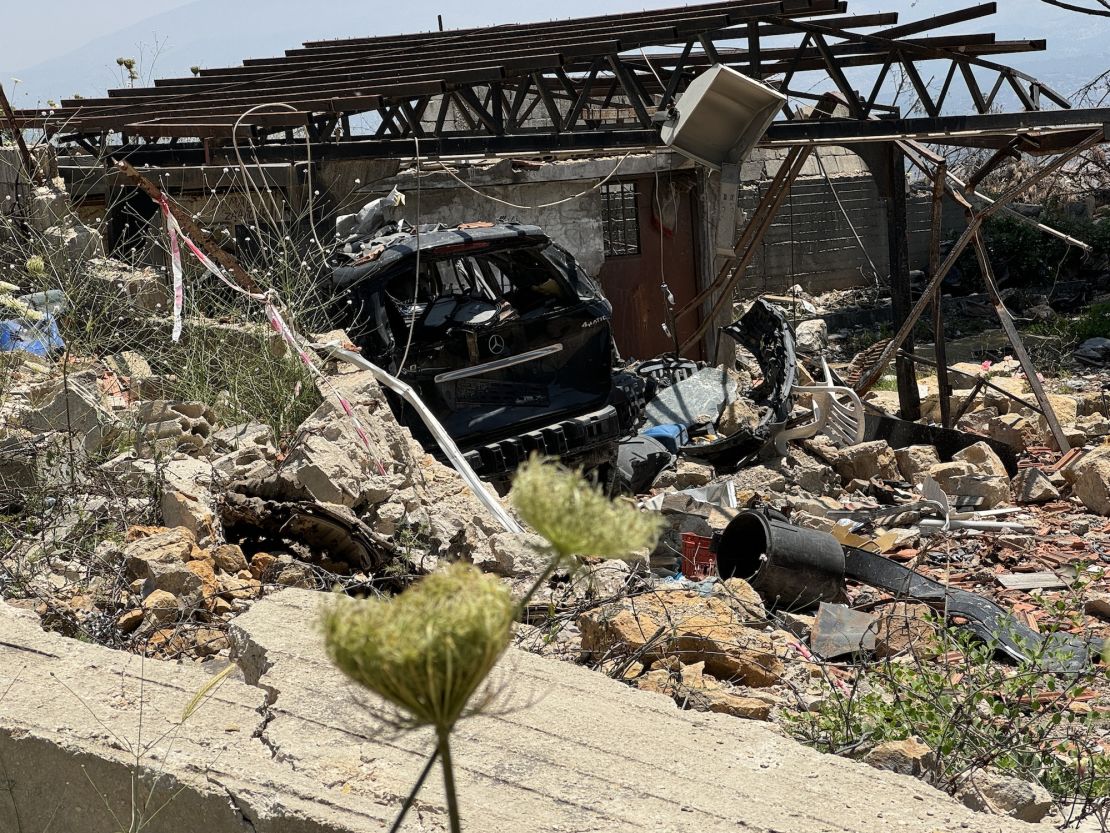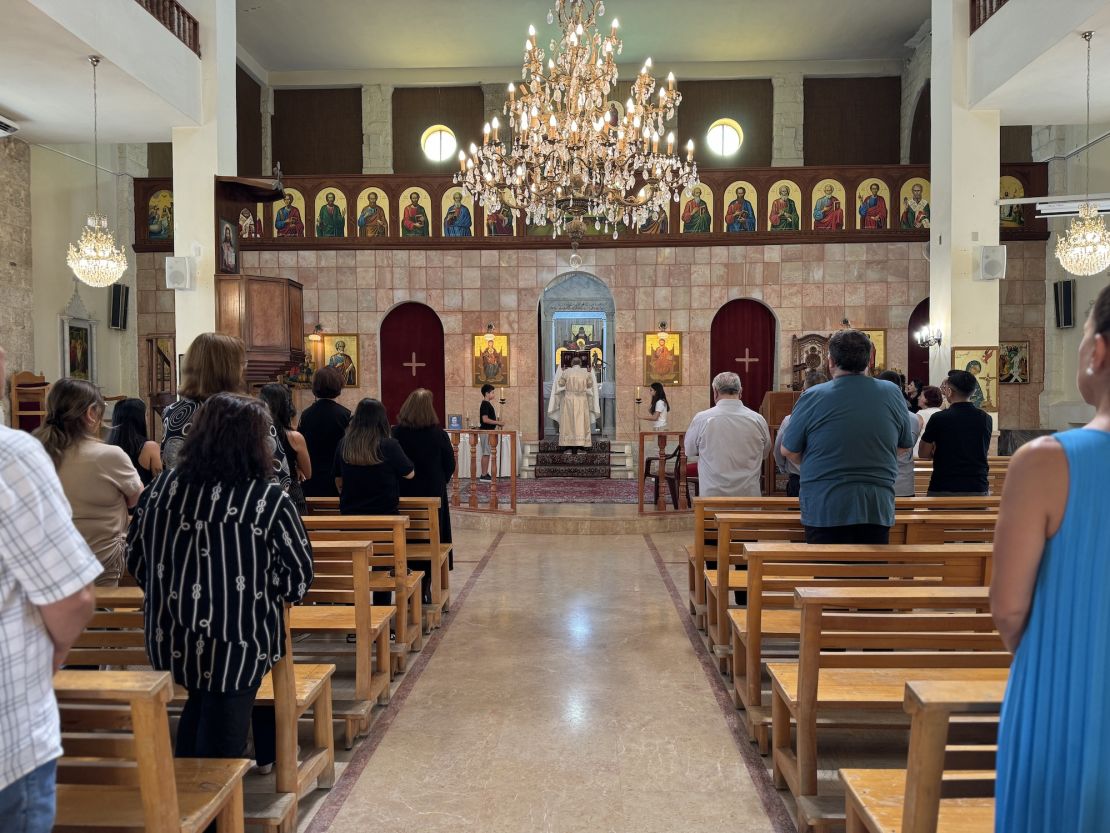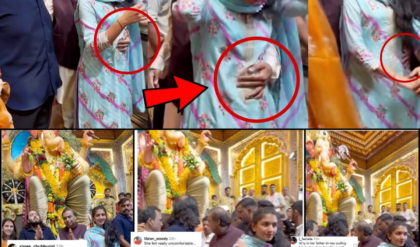
The town of Metula, Israel as seen from southern Lebanon. Smoke rises on the Lebanese side of the partition after an Israeli strike.
In the town of Marjayoun in southern Lebanon, around five miles north of the Israeli border, the main square seems almost abandoned.
A few men play billiards in a storefront nestled in a building crowned with life-sized statues of the Virgin Mary and Saint Charbel, a revered Lebanese saint.
They don’t want to talk about the wars and rumors of war that for decades have plagued this predominantly Christian town near the border.
Journalists are a bother, one grumbles, and goes back to the game.
On the other side of the square, a woman in her thirties comes out of a grocery store with a small bag.
“Marjayoun is very nice, it’s fantastic,” the woman, Claude, tells me. “But the shelling scares us.” That’s all she wants to say.
Throughout the day, occasional thuds of incoming and outgoing fire echo through the streets.
Tensions between Israel and Lebanon have risen sharply since the October 7 Hamas attack on Israel and the ensuing military campaign by Israel in Gaza. The Iran-backed militant group Hezbollah has been firing missiles, mortars and drones into Israel, and Israel has returned that fire.
Tens of thousands of people on both sides of the mountainous border have fled as concerns intensify about the possible outbreak of another full-fledged war.
On the Lebanese side, residents of Shia-majority towns like Kafr Kila, Adaisa, Aita Al-Shaab and Aitaroun have almost all left. Frequent Israeli airstrikes and artillery barrages have reduced many of these communities to rubble.

Damaged property in the town of Marjayoun, southern Lebanon.
Marjayoun, in comparison, has been mostly spared.
The town was the headquarters of the Israeli-armed and funded South Lebanese Army (SLA), a Christian-led proxy militia, during Israel’s decades-long occupation of southern Lebanon, which ended 24 years ago after a protracted guerilla war with Hezbollah.
When Israel pulled out in 2000, many of Marjayoun’s inhabitants fled south across the border to Israel, fearful of being accused by fellow Lebanese citizens of being collaborators with Israel.
Their departure, along with Lebanon’s collapsed economy, fear of yet another prolonged conflict, the absence of a functioning state and emigration have sapped Marjayoun of people and prosperity.
Yet, more than two decades later, some residents still cling to their ancient town and vow not to leave.
“I feel this area has a geographical curse. There has always been tension,” Edouard Achy told me. “The threats are coming from both sides of the border. Tensions are increasing day by day. Everything points to something about to happen.”
Is he going to leave, I ask.
He shrugs. “After more than eight months of this situation, people just want calm and quiet,” he says.

Sunday mass at the Maronite Church in the town of Marjayoun, southern Lebanon. Around 90,000 residents are said to have left the south of the country since October 7th amid ongoing tensions between Hezbollah and Israel.
Muhammad Darwish/CNN
His sister, Amal, and her family have come to church to say a special prayer to mark 40 days since her mother died. Dressed in black with a crucifix around her neck, she brought large loaves of bread and bags of buns to share with the congregation.
Amal exudes a strong connection with her hometown, but wonders how much longer it will be safe as the clouds of war gather overhead.
“We’re staying put, and God willing, we’ll continue to stay,” she insisted. “The south is the Holy Land. The Messiah tread here two thousand years ago.”
She paused and sighed. “But if things escalate to war and it reaches here like it did before, with some shelling, of course, like others, we’ll have to leave,” she said.





